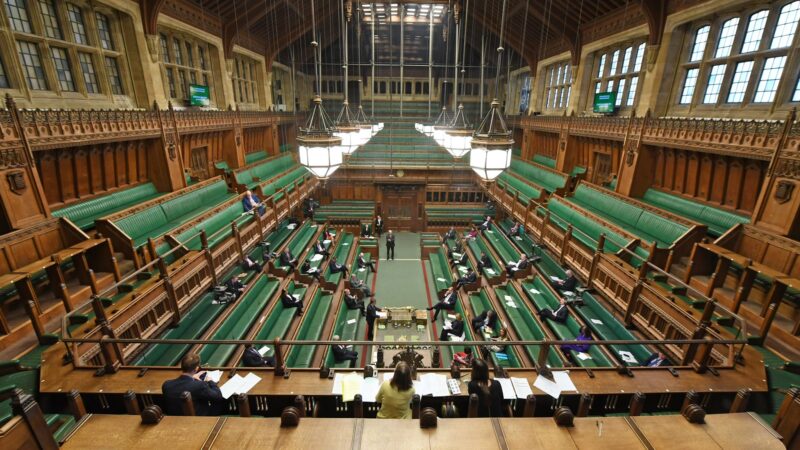
The House of Commons has tonight voted down a range of Labour-supported agriculture bill amendments that had sought to uphold British food and animal welfare standards in future trade deals.
The amendments put forward by the House of Lords were all opposed by MPs tonight after a tense debate in which Labour accused the government of only supporting farmers “when the sun shines”.
The Lords had made changes to the bill including the demand that the government create rules to ban the import of food with lower standards than current ones, such as chlorinated chicken or beef fattened with hormones.
Government ministers dismissed the proposed changes, saying they would add “unnecessary layers of complication” to any future trade negotiations and could obstruct our chances of securing deals after Brexit.
Voicing Labour’s support for the amendments during the debate, Shadow Environment Secretary Luke Pollard said: “Today, members on both sides of the House are being given a choice about what kind of country we want Britain to be.
“Do we want to be a nation that shines as a beacon across the world standing up for our farmers, standing up for the welfare of our animals and standing up for the environment?
“Or do we want to throw that all away just for the vague promise of a trade deal, where poor quality food is served to our children, where standards are undercut and where carbon and animal welfare responsibilities are exported?”
Pollard criticised the government for choosing to undercut food safety and animal welfare protections in the UK despite celebrating the “high standards” of British farming in the 2019 Conservative election manifesto.
The Labour frontbencher and Plymouth MP added: “I saw a lot of members on the benches opposite for Back British Farming Day in September. Every day should be Back British Farming Day…
“And on this day, when our farmers need us, we have a chance to see who are the real friends of farming. Who are there when the weather is bleak… and who are there only when the sun shines.”
Another of the changes proposed by the Lords instructed the government to set agriculture-specific climate change targets and address the fact that the sector produces around 10% of the UK’s carbon emissions.
Pollard said: “Tonight our farmers will be looking at the votes cast in this place. They will be looking to see if members of parliament… support British farmers or whether they choose not to.”
Reacting to the vote, Labour’s deputy leader Angela Rayner tweeted that the ruling Conservatives are “a disgrace, letting our farmers down, letting consumers down, our high animal welfare standards in the gutter”.
The government initially refused in May to amend the agriculture bill in a way that would ensure the UK’s existing environmental protections, food safety regulations and animal welfare laws, leading to the Lords amendments.
The proposed changes had gained widespread support not just from opposition parties but also celebrity chefs such as Jamie Oliver, Yotam Ottolenghi and Prue Leith, plus the National Farmers’ Union (NFU).
Several senior Tory MPs also announced plans to rebel over the amendments this week, including Commons environment committee chair Neil Parish and Northern Ireland committee chair Simon Hoare.
Keir Starmer wrote a letter to Boris Johnson last week demanding that the Prime Minister “back British farmers” by supporting the party’s proposals to protect the UK from lower-standard food imports after Brexit.
The Labour leader told the PM: “I want our country to produce the best food in the world, where our farmers compete on the basis of quality and are not undermined by producers working to lower standards elsewhere.
“Britain should be a beacon of quality, high standards, ethical treatment of animals and environmental protections in all aspects of food production.”
The government’s agriculture bill will now be sent back to the House of Lords as part of a process known as ‘ping pong‘ in which the two chambers resolve policy disagreements by sending bills back and forth.
Below are the full results of the amendment votes.
Lords Amendment 11, which sought to limit the use of pesticides to protect the public, was voted down by 347 votes to 212.
Lords Amendment 16, which aimed to maintain British food standards in trade deals, was voted down by 332 votes to 279.
Lords Amendment 17, which sought to improve environmental protections, was voted down by 344 votes to 206.




More from LabourList
‘The cost of living crisis is still Britain’s defining political challenge’
‘Nurses are finally getting the recognition they deserve’
Letters to the Editor – week ending 15th February 2026